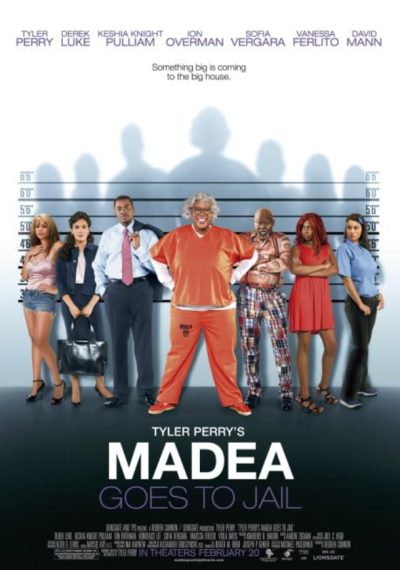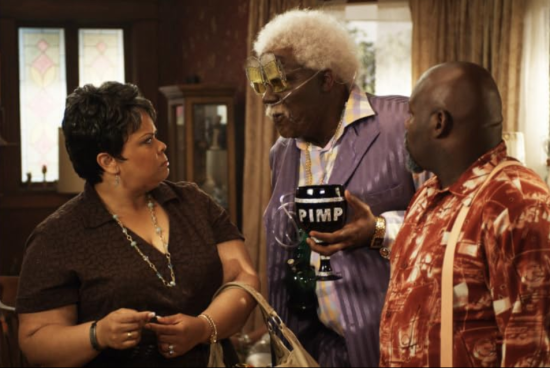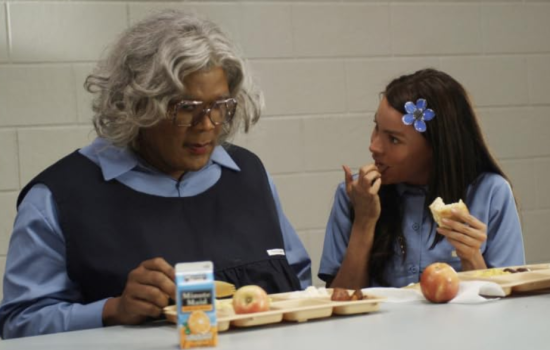 Tyler Perry continues to preach to the choir with his entertaining albeit stereotype-laced blend of melodrama and comedy.
Tyler Perry continues to preach to the choir with his entertaining albeit stereotype-laced blend of melodrama and comedy.
Joshua Hardaway is a DeKalb, Illinois assistant DA (well played by Derek Luke) attempting to rescue an old friend named Candice from a life of prostitution and addiction.
Joshua's attorney fiancee Linda (played by Ion Overman) takes a dim view of his humanitarian efforts and sets about pulling some unethical legal strings.
The comedy comes to life whenever Tyler's irrepressible lifelong criminal Madea takes over, turning her rage at the social misdemeanors of others into humorous action.
As a filmmaker, Tyler Perry is content to recycle his talents and pad his pictures with self-congratulating cameos by the likes of Dr. Phil and the Reverend Al Sharpton.
If he ever gets around to widening his world view he might surprise himself and his loyal audience in the bargain.
(Lionsgate) Rated PG-13. 103 mins.









